Semi-industrial farming
Nearly a year ago, Mr. Le Van Thao's family in Ward 3, Minh Thanh Commune, Chon Thanh Town, switched from pig farming to chicken farming. Besides the commercial Binh Dinh broiler chicken breed, Mr. Thao invested in a trial of raising 400 white-feathered Egyptian chickens for egg production. After only about four months of raising them, the Egyptian chickens began laying eggs. On average, his farm sells about 200 eggs to the market daily, at a price of 2,500-2,800 VND per egg. Seeing the economic efficiency and much higher income compared to raising broiler chickens, he expanded to 2,400 chickens.
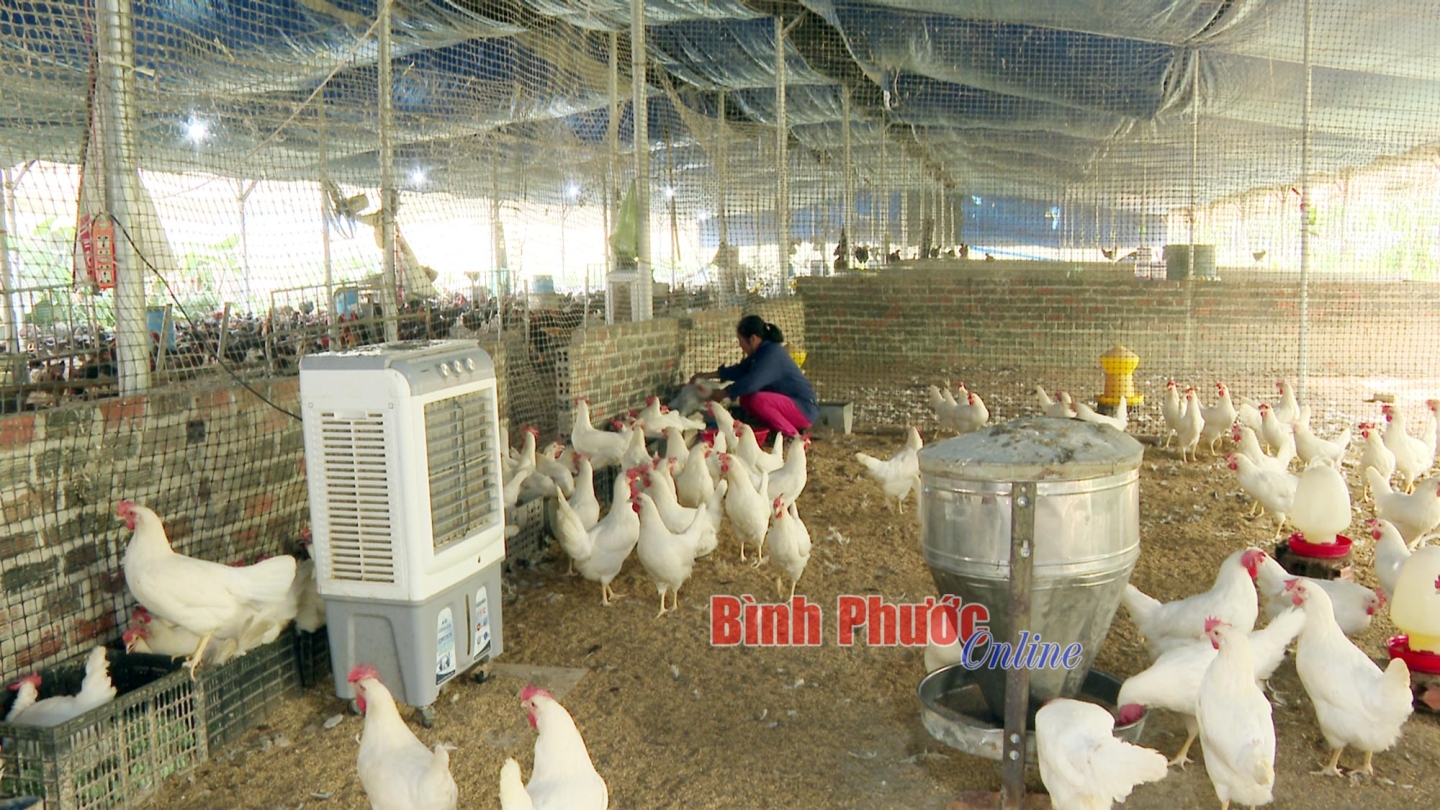
To ensure the stable development of his flock, Mr. Thao also equipped himself with additional knowledge and skills in raising this breed of chicken. According to Mr. Thao, to achieve a high survival rate, good health, and high reproductive output for newly released chicks, the most important factor is selecting the right breed. He emphasizes the need to source breeds from reputable suppliers that guarantee quality. Furthermore, the feed and water must be clean and nutritious. Importantly, during the rearing process, all necessary vaccinations are required to prevent diseases such as cholera, coccidiosis, and avian influenza. He also regularly cleans the chicken coops. As a result, his family's flock thrives and remains disease-free.
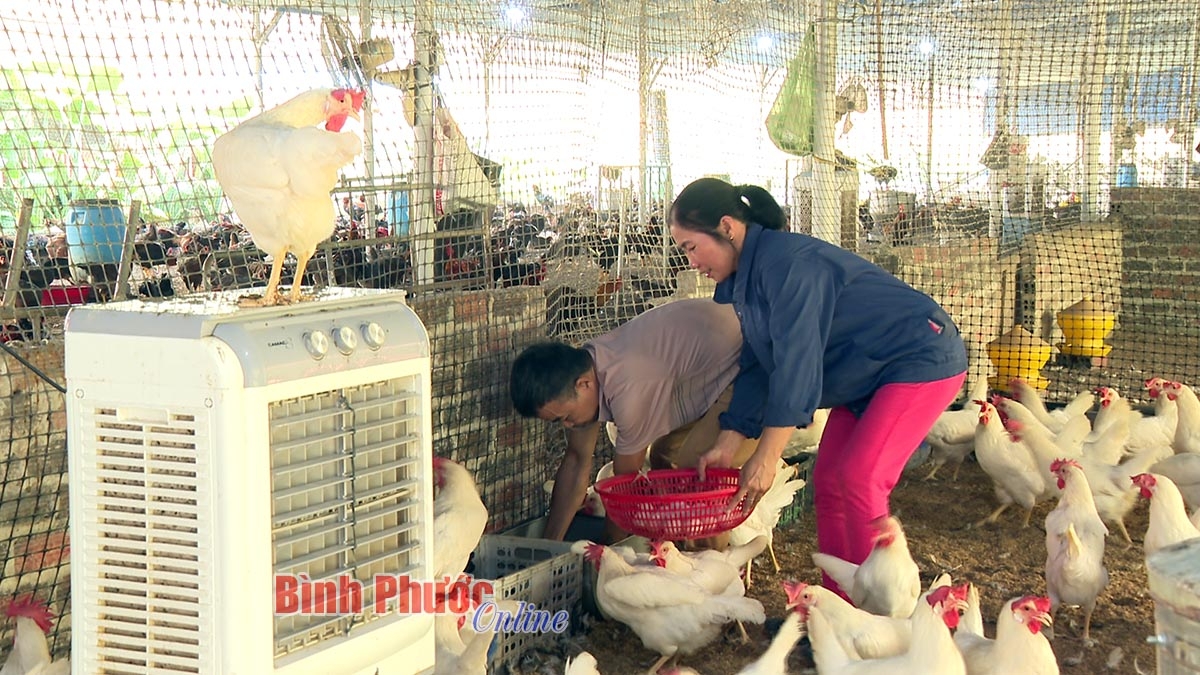
Egyptian chickens have many advantages such as high egg production, averaging 200-220 eggs per chicken per year, double that of native chickens; in addition, their meat is firm, flavorful like native chicken, and has high nutritional content… This breed can be raised free-range, industrially, or semi-industrially, is hardy, and is suitable for the conditions and farming practices in Binh Phuoc .
Mr. Thao's family chicken farm has become a reliable supplier of eggs for small traders and residents in the ward. Although not large-scale, the model has proven economically effective, providing farmers with income and a quick return on investment. However, stable output is still necessary for expansion.
Raising in cold cages
Mr. Le Duy Thanh's family in Hamlet 7, Long Hung Commune, Phu Rieng District, owns 10 hectares of land planted with cashew and rubber trees. For several years, the prices of cashews and rubber were low, prompting him to seek new development opportunities. Recognizing the potential of raising high-yielding white-feathered Egyptian chickens, and seeing that his family had unutilized land, in 2023, Mr. Thanh invested 700 million VND to improve the land and build a closed-loop cold storage facility to raise 3,200 Egyptian chickens.
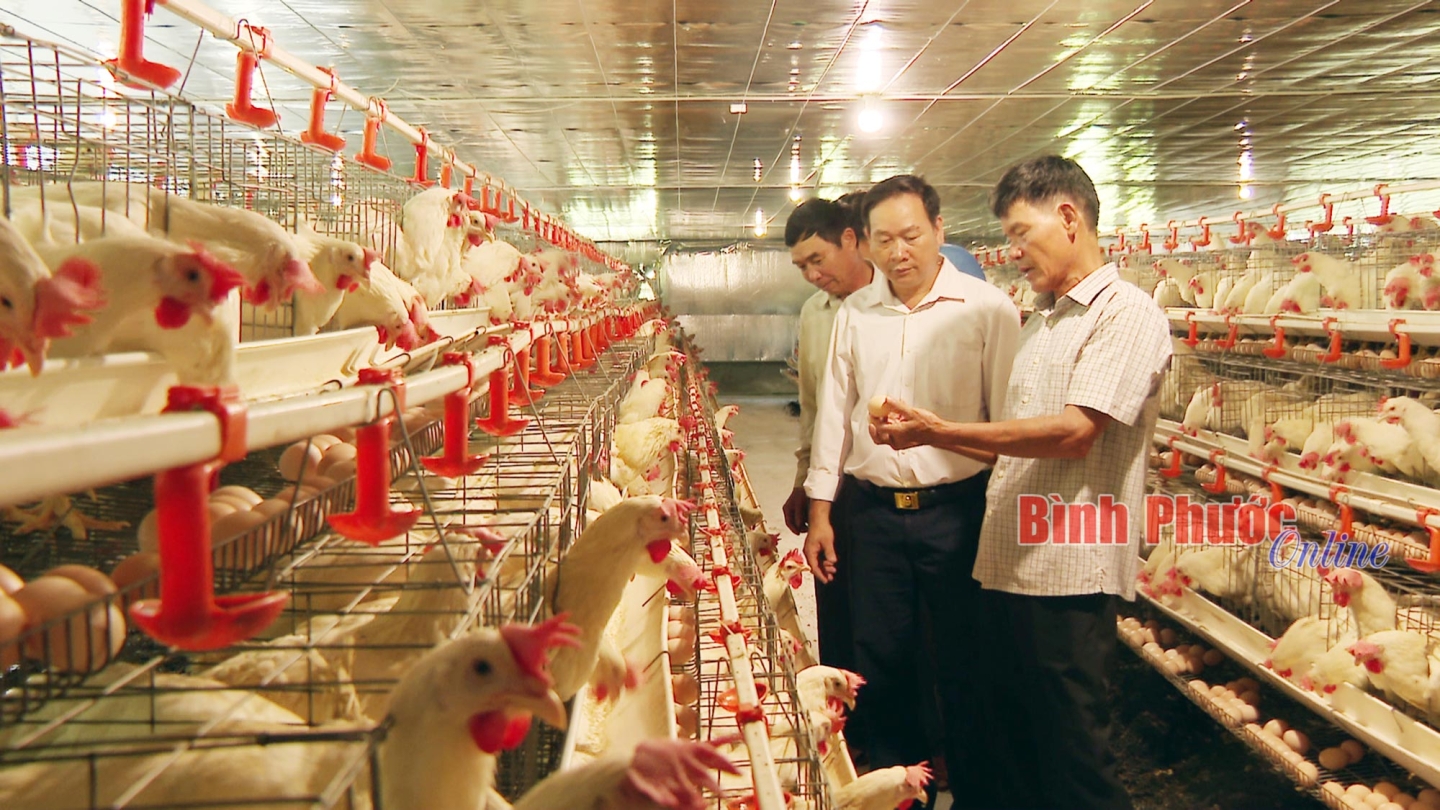
Accordingly, Mr. Thanh invested in building a 300m² livestock area, with disinfection and sterilization systems installed right from the entrance to the farm. The barns are spacious and airy, equipped with an automatic drinking water system and cooling units. He also purchased biochar and placed bedding on the barn floor to treat livestock waste. Mr. Thanh stated that using bio-bedding reduces labor and barn cleaning costs by more than 70%. Furthermore, it significantly reduces the odor from chicken manure, minimizing the risk of environmental pollution.
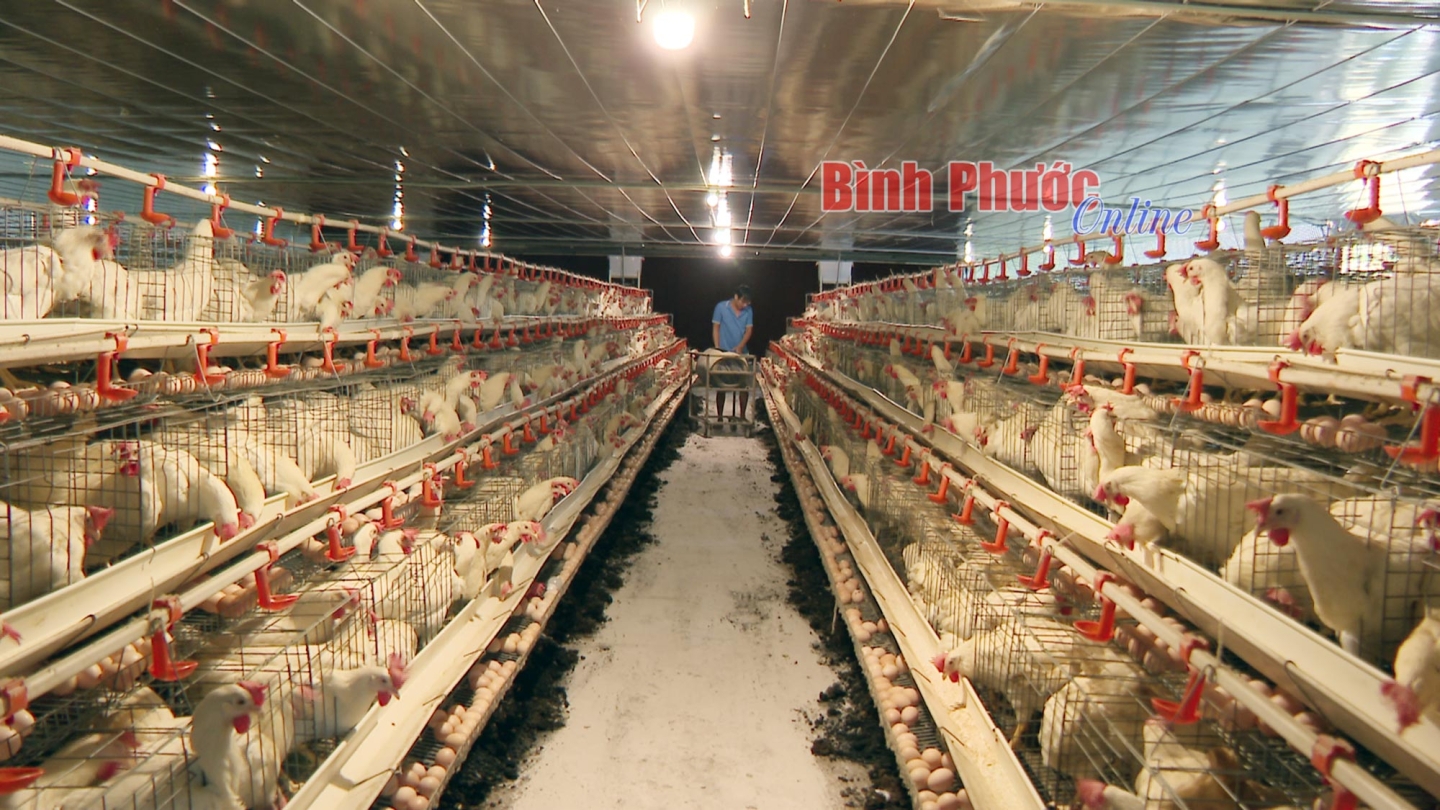
After more than 4 months of raising chickens that started laying eggs, Mr. Thanh's family collects 3,000 eggs per day, earning over 2 million VND per day after deducting expenses. In addition, he earns over 6 million VND per month from selling chicken manure. Thus, he recovered his investment in less than a year.
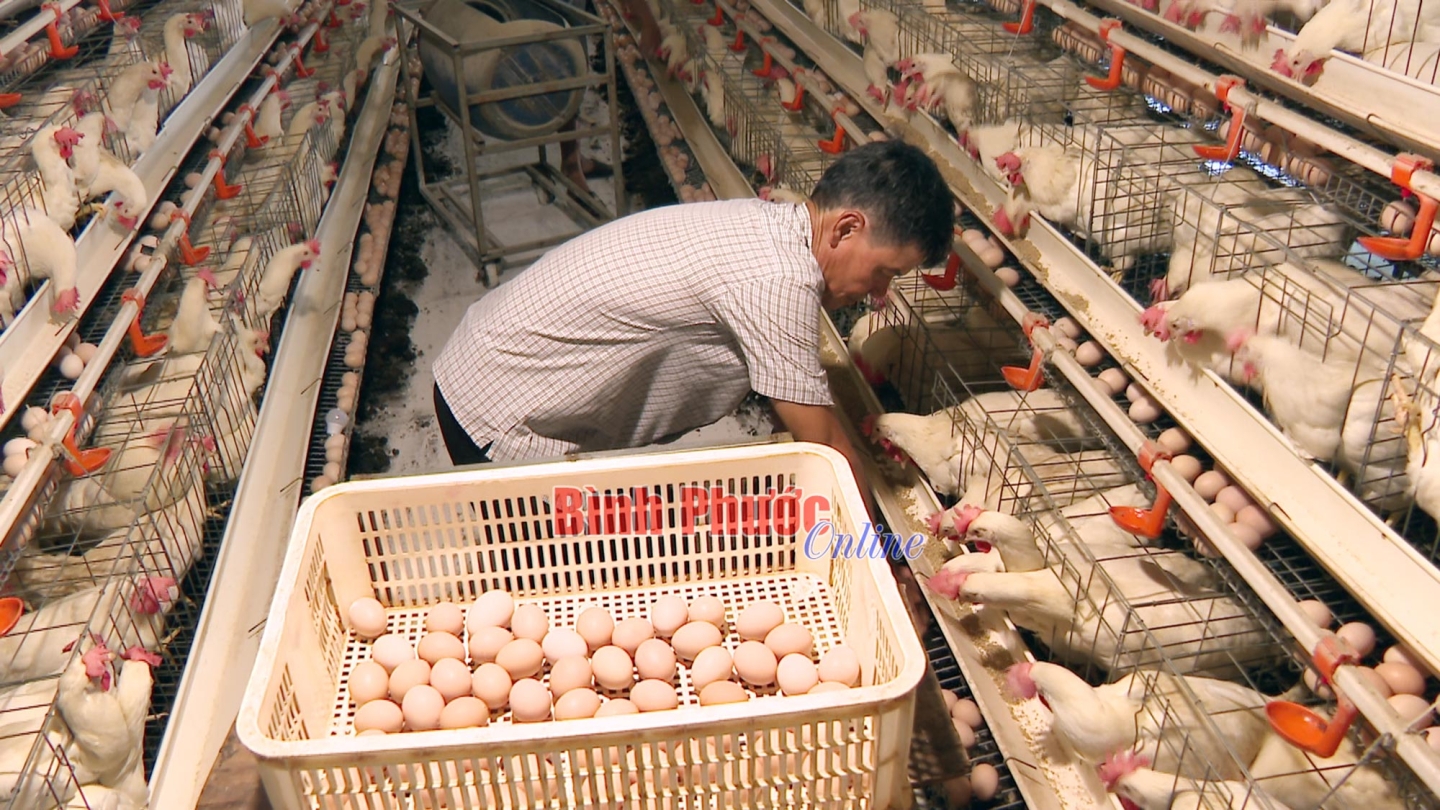
Raising chickens in cold-storage facilities requires maintaining a temperature of 24-30 ° C, supplementing with digestive enzymes, and vaccinating against diseases throughout the rearing process. When raised in cold-storage facilities, the egg-laying rate reaches 95%, and after 15 months, the flock is replaced with a new one before the chickens can be sold for meat. "Raising chickens in cold-storage facilities requires a large initial investment. However, with careful planning and a long-term strategy, the cost is significantly lower than in open-storage facilities," Mr. Thanh explained.
The economic efficiency of raising Egyptian egg-laying chickens in cold-storage facilities has been confirmed; the biggest obstacle is the need for significant investment capital. However, in the long run, this is an investment direction that guarantees good profits. Furthermore, as livestock farming becomes more systematic, and technical, food safety, and environmental requirements become stricter, this direction is highly commendable and should be encouraged. Chairman of the Farmers' Association of Long Hung Commune, Phu Rieng District, Pham Van Cong |
Mr. Thanh's cold-storage chicken farming model is an advanced and highly effective technique, the first of its kind implemented in Long Hung commune. His family's chicken farm has become a reliable supplier of eggs for traders and residents in the area.
The success of the Egyptian chicken egg-laying model is opening up a new direction for the local agricultural sector. This contributes to the formation of a high-value, sustainable agricultural sector in Binh Phuoc province.
Source: https://baobinhphuoc.com.vn/news/4/166115/trien-vong-tu-nuoi-ga-ai-cap



![[Photo] General Secretary To Lam working with the Central Inspection Committee](https://vphoto.vietnam.vn/thumb/1200x675/vietnam/resource/IMAGE/2026/03/05/1772718314670_a1-bnd-8682-5192-jpg.webp)


![[Photo] Prime Minister Pham Minh Chinh receives the Minister of Emergency Situations of the Russian Federation.](https://vphoto.vietnam.vn/thumb/1200x675/vietnam/resource/IMAGE/2026/03/05/1772712011395_ndo_br_thiet-ke-chua-co-ten-76-png.webp)












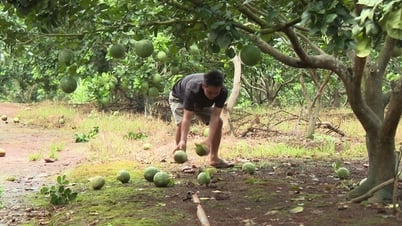



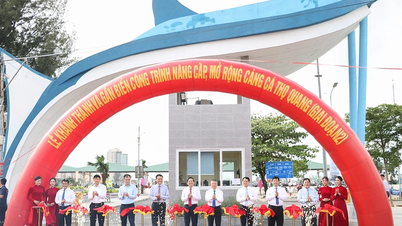















![[Infographic] Action Program of Candidates for the 16th National Assembly - Constituency No. 4](https://vphoto.vietnam.vn/thumb/402x226/vietnam/resource/IMAGE/2025/9/26/1331532306fb4ad18e4a849e5c64202a)









































































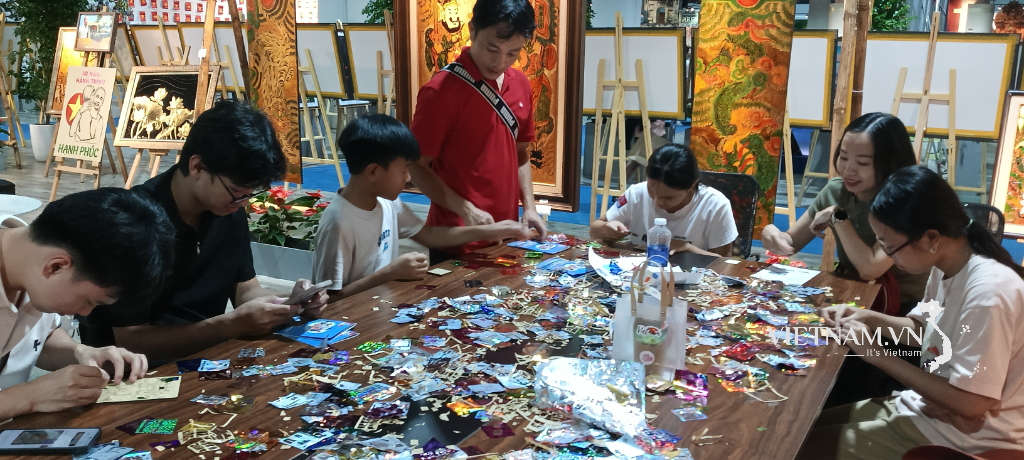
Comment (0)